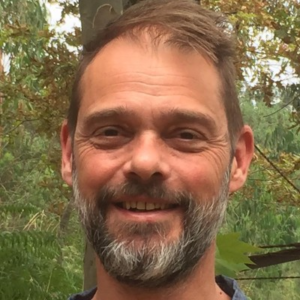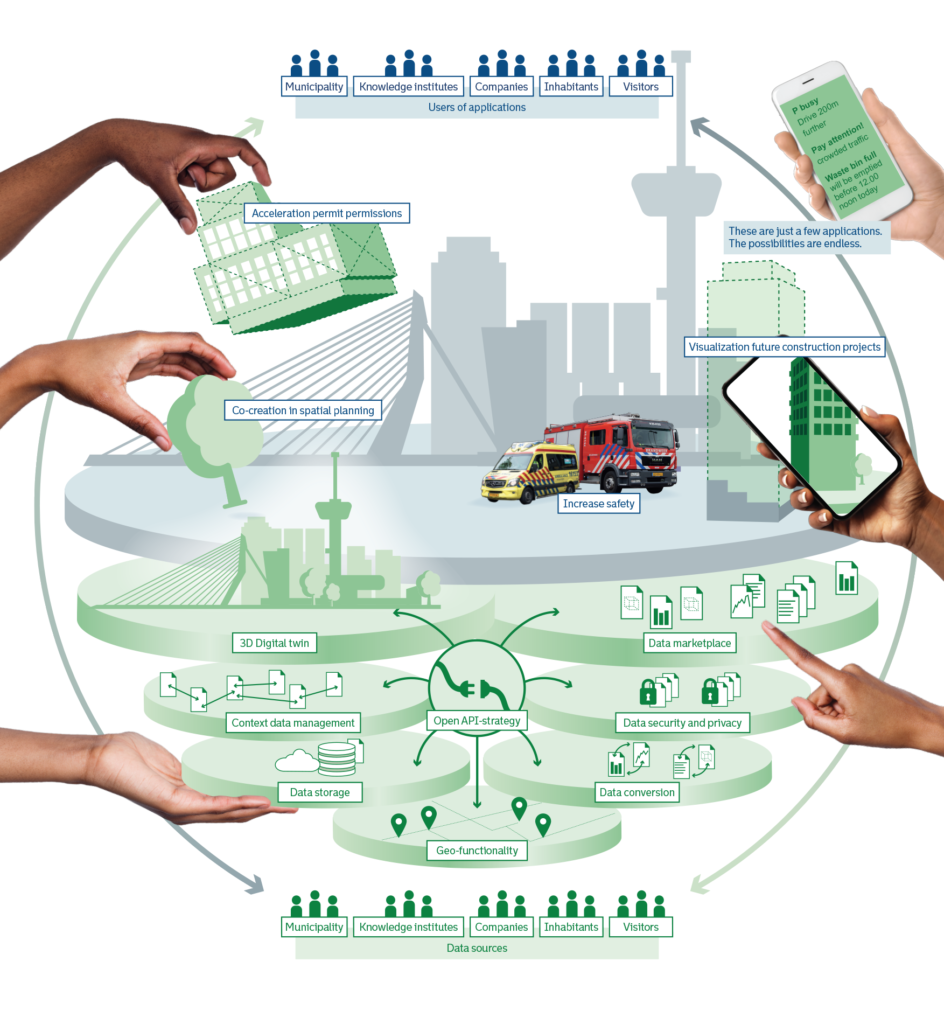
Photo: ID 6822044 © Ljupco | Dreamstime.com
Rotterdam forges ahead with homegrown digital twin
14 February 2023
by Sarah Wray
There are plenty of data and digital twin platforms available on the market but the City of Rotterdam has commissioned its own, requiring trust and data standards to be built in.

An increasingly digital world requires new infrastructure that is as important as physical roads, says Roland van der Heijden, Rotterdam’s Digital City programme manager.
The way he sees it, we are facing a “whole new reality” in which data and digitalisation are inextricably linked to social and physical reality. In this context, “digital infrastructure is something we don’t want to leave to the Googles of this world”.
The specific roles of governments, private companies and others are still emerging but Van der Heijden believes cities should not be passive.
“We see the open urban platform as a centrepiece in that digital infrastructure,” he told Cities Today. “And by enhancing these developments ourselves, taking a role in it, we can find out and learn what kind of role we should have in this development and infrastructure.”
Rotterdam’s vision is that the new open urban platform and the digital twin it underpins will serve as collaborative tools for not just the municipality but the whole city, including businesses, academia, civil society and residents.
They could have applications for emergency services, planning, resident engagement and a whole host of collaborations that haven’t been dreamed up yet.

Data standards
The project dates back to 2018, with ideas being discussed as early as 2015, and the latest phase follows a proof of concept and prototype.
Dutch software company Future Insight – along with consortium partner Capgemini – was recently selected from a European tender process to develop an open urban data platform with a digital twin. The agreement is in place for up to ten years.
A 3D model of the whole of Rotterdam containing fixed physical objects will be supplemented with real-time data.
“It’s the first time that we’re really going operational and it’s no longer a test phase but really into practice,” Van der Heijden says.
The municipality is investing around €800,000 (US$854,108) in the initiative, and the partners are contributing the remaining two-thirds of the overall €2.3 million cost, with the idea being that the tool can be scaled to more cities. As well as sharing costs, Van der Heijden said it’s important that the responsibility to make the initiative a success is also shared.
The city took this route as, according to Van der Heijden, most solutions available on the market are closed systems, which limits scale and flexibility.
The platform is being developed with flexible technical components (Minimal Interoperability Mechanisms – MIMs) that are connected to each other by established open interfaces (Pivotal Points of Interoperability – PPIs). Data and software providers must use the same open approach and standards, meaning that tools are interoperable and vendor lock-in is minimised.
“We’re not focusing on the software, we’re focusing on the data and [making sure] that data can flow for that digital infrastructure,” Van der Heijden explains. “To make it possible that data can flow, we need to have a common language in which we exchange data with each other.”
Trust
While legislation such as GDPR is in place and followed by companies, there are still “grey areas” in the digital world, which can lead to exploitation, says Van der Heijden.
“When there are no rules, anything is allowed.”
Research from the Erasmus University in Rotterdam and others has also highlighted that trust among partners and of the underlying infrastructure is a major factor affecting participation in urban data platforms.
To counter risks and ensure data is used responsibly, Rotterdam is convening an external data governance board that will make decisions on data uses, applications and combinations to ensure they are ethical and respect privacy.
Van der Heijden said research also showed that people trust private companies more when it comes to delivering effective technology and infrastructure and governments more on ethical issues and privacy. Therefore, through the partnership Rotterdam is aiming to combine the best of both worlds.
Applications
The aim is to bring an ecosystem from across the city together to share data and collaborate on the platform towards their own and wider goals.
In the meantime, the municipality is working on some showcase applications that demonstrate the power of shared infrastructure and interoperable systems.
One is to give the fire department as much information as possible before they attend an emergency. They currently have 2D maps on tablets as they travel to the scene but ground floor plans are not always enough in a city with many high-rise buildings.
The application will bring together 3D information on the surrounding area, the interior of the building and even underground infrastructure such as pipes and cables. This will be combined with real-time data on factors such as building occupancy and road capacity.
Another application will speed up the permitting process by combining building information models (BIM) for new building plans with ‘smart rules’ that can automatically check compliance with city codes.
Rotterdam is also experimenting with using the digital twin for co-creation with residents. For example, allowing people to provide their input on the redesign of a public square and visualise changes via augmented reality. With rules, budgeting restrictions and relevant infrastructure mapped into the digital twin, residents can have their say on issues such as the placement of trees and benches, while better understanding the complexities at play.
In addition, the municipality is talking to a housing company in Rotterdam that owns 50,000 homes, which already have their own BIMs.
“You could say they made 50,000 digital twins of their whole stock,” says Van der Heijden, who is now looking at how these could be combined with the city digital twin.
“Then we can ask ourselves questions: do we share reality? And if we share a reality, how can that benefit us in working together in the sustainability goals that we both have?”
Rotterdam hopes to have a minimum viable product (MVP) of the platform and digital twin up and running by the end of the year and to be fully operational by the end of 2024.











